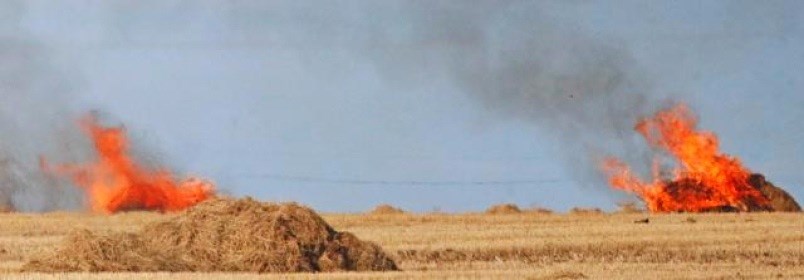A Saskatchewan company, Prairie Clean Energy (PCE) of Regina, has found a way to take the thousands of tonnes of Saskatchewan flax straw that gets burned or trashed on the prairies every year and turn it into something that can provide income to producers and sustainable growth for rural Saskatchewan.
PCE is processing and selling flax straw for biomass fuel to Canadian and global customers.
“There is a world shortage of wood fibre used to make biomass fuel and almost 670,000 tonnes of flax straw gets burned or trashed on the prairies every year. Flax straw actually burns at higher BTUs per pound than wood fibre, making it a natural alternative to wood, and most importantly, something Saskatchewan flax farmers can make money from,” said CEO Mark Cooper.
He noted there are hundreds of power plants in Asia, Europe and some in North America that are using biomass fuel, mostly wood, to power them.
There are plants like this in Japan that is even sourcing sawdust from furniture factories in Vietnam, just so they can have enough biomass fuel to burn.
To connect directly with flax producers and answer questions, PCE held a town hall in Weyburn recently, and similar events in other Saskatchewan communities.
“Our plan is to buy baled flax straw by the tonne from producers and if they can’t bale it, we’ll come out and bale it for them,” said Trevor Thomas, founder of the company. “This is where future jobs in rural Saskatchewan can come in. We want this global issue to be a Saskatchewan success.”
He notes that one third of the world’s flax crops are grown on the prairies, much of it here in Saskatchewan, and most farmers will burn off the flax straw or bale it as bedding for livestock, but otherwise have no other way to deal with the straw.
Cooper explained that BTUs per pound is what determines the most efficient fuel for burning, and said most wood will produce between 4,000 and 7,000 BTUs per pound. In comparison, flax straw will burn at about 8,200 BTUs per pound.
PCE is signing contracts with Saskatchewan flax producers right now to buy their flax straw from them, process it and provide it to customers in Canada and around the world as biomass fuel.
At the meetings, or when contacted by farmers about signing up with them, the producers are asked to sign a letter of intent, and then information is sent to them, such as the pricing for buying the straw, and they ask the farmers how much flax they are producing.
Once a contract is signed, the farmers are asked to bale the straw in square bales and stack them for pickup, or if they are unable to bale them, PCE will arrange to come and do the baling and will haul the straw away.
“We’re Saskatchewan boys, we’re not from some fancy office in Toronto. These are our communities, and we want to talk to producers face-to-face and explain it to them,” said Cooper, adding a big positive is that the demand for biomass fuel is only going to go up as countries move away from coal-burning power plants, and prices are very good right now for the flax straw.
Producers who are interested in learning more about this can go to their website




